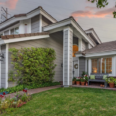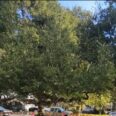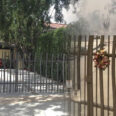
Pasadena officials are exploring ways to make it easier and less expensive for homeowners to build Accessory Dwelling Units, as part of efforts to increase affordable housing options in the city.
ADUs are small secondary housing units on residential properties, commonly referred to as “granny flats.”
The Council’s Economic Development and Technology Committee is considering plans to reduce plan check, permit and impact fees for ADUs.
“During community meetings and at public hearings, staff received requests to consider reducing fees applicable to ADUs,” said Jennifer Paige, director of the Planning and Community Development Department, in a memo to the so-called EDTECH Committee.
The proposed fee reductions come as Pasadena faces significant demand for ADUs. From 2020 through 2023, 484 ADUs were constructed in the city, with 77.7% under 750 square feet.
Currently, Pasadena charges the same fees for ADUs as other residential construction. For an 800-square-foot ADU, plan check and permit fees total $14,300.
A survey of 14 cities found Pasadena’s ADU fees to be the highest. The average plan check and permit fee for a small ADU was $7,200 among surveyed cities, compared to Pasadena’s at double that.
Under one option being considered, those fees would be cut by 50% for small ADUs up to 800 square feet. Medium-sized units from 801 to 1,000 square feet would see a 25% reduction.
Another option would offer these reductions only for ADUs with affordability covenants or landlord agreements.
The City is also weighing changes to its Residential Impact Fee, which helps fund parks and recreational facilities. One proposal would exempt all ADUs up to 800 square feet from the fee.
Currently, ADUs under 750 square feet are exempt from Residential Impact Fees under state law. Affordable ADUs pay a reduced flat rate of $1,158 with an affordability covenant or landlord agreement.
However, officials caution that the fee reductions could impact city revenues. Staff estimates Residential Impact Fee collections from ADUs would drop about 35%, from $105,000 to $68,000 annually.
“This would directly impact funds available to the Parks and Recreation Department for parks, open space and recreational facilities in the City,” the memo states.
The fee study stems from a City Council directive and the City’s housing element, which calls for evaluating fees related to housing production. Officials hope lower fees will make ADUs more affordable for homeowners.
If the Committee supports the reductions, City staff would return with a formal recommendation for the City Council to adopt a new fee resolution for ADUs.
Any changes would require final approval from the full City Council.
The Committee is set to provide feedback on the proposals at its September 17, 5:00 p.m. meeting in Council Chambers at City Hall.














 1 comment
1 comment


